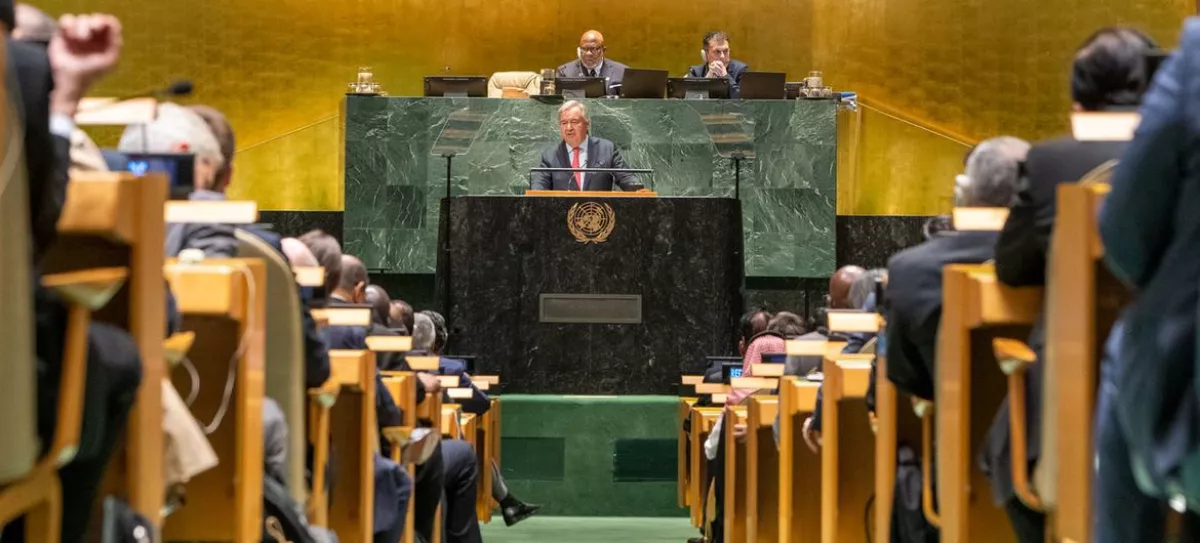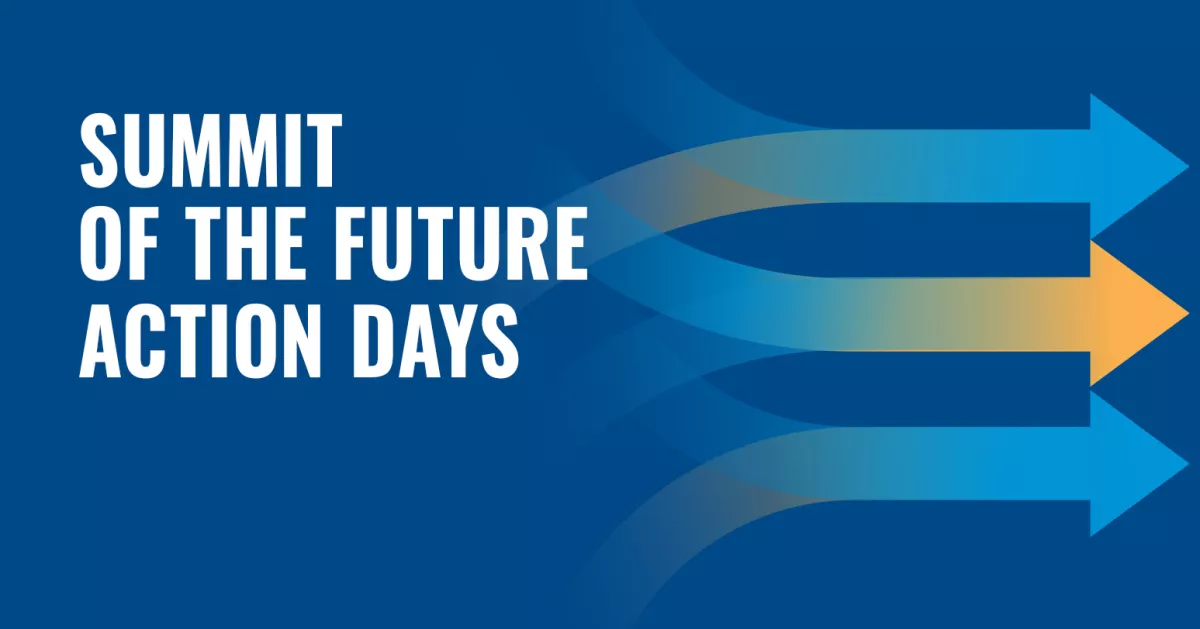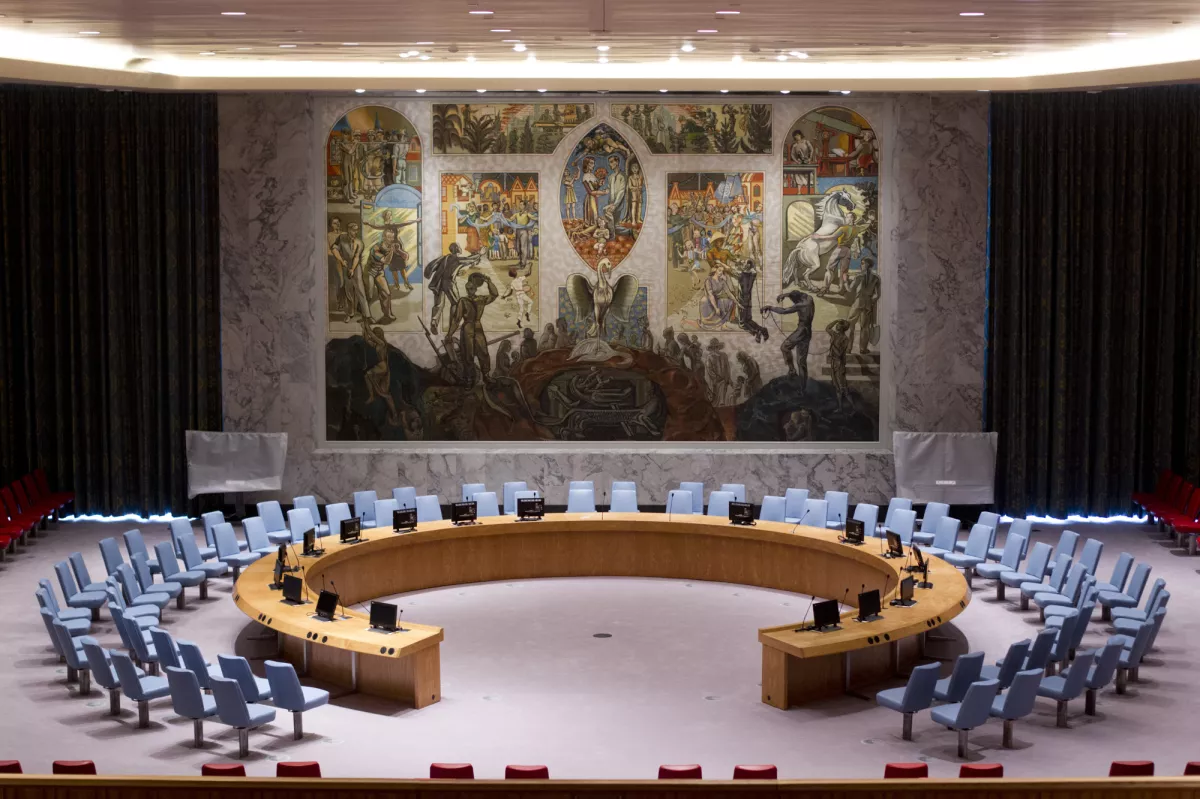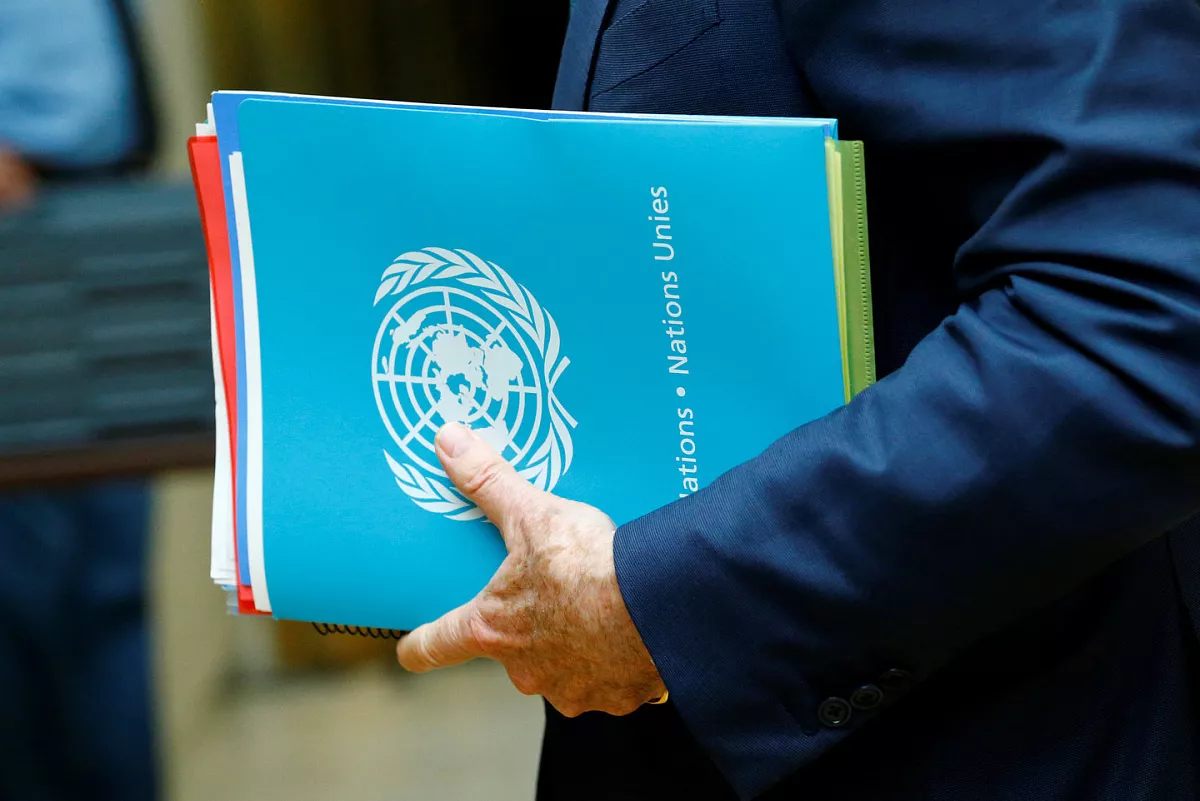Is the UN facing the fate of the League of Nations? Transformation or degradation
The 79th session of the United Nations General Assembly has kicked off in New York. This year, the Summit of the Future is being presented as a pivotal moment for the UN. However, ongoing disagreements and conflicting interests among member states in an ever-changing world are rendering the UN increasingly ineffective. The state of its Security Council serves as a disheartening example of this dysfunction.
From September 23-27, the General Assembly will feature its main event—High-Level Week—where presidents, prime ministers, and foreign ministers from around the world will address the assembly. Their speeches will include numerous bold statements, which leading global media outlets will broadcast in real-time. The UN headquarters in New York will once again transform into a busy political hub, with nearly two hundred national delegations moving between the plenary session, side event rooms, and countless bilateral meetings.

This is a familiar September routine, driven by tradition and the sheer fact that a vast number of global leaders and their representatives gather in one place. However, in recent years, this routine has become increasingly controversial.
On one hand, the growing number and scale of global upheavals have drawn heightened attention to this gathering. Leaders are expected to deliver groundbreaking solutions and diplomatic triumphs. On the other hand, with each new session of the General Assembly, there is a rising fatigue over the stagnation on key issues affecting humanity, particularly the UN's inability to reform itself in line with the realities of modern international relations. There is even a sense of helplessness surrounding the planet's main organization, which is increasingly failing to fulfil its core function—maintaining international peace and security.
Summit of the Future: Important but insufficient
The agenda for High-Level Week at this year’s General Assembly session starkly highlights the aforementioned contradictions.
The UN Secretariat emphasizes that the 79th session marks a significant milestone in global efforts to advance the 17 Sustainable Development Goals (SDGs). In this context, the Summit of the Future is particularly promoted. It aims to conclude a four-year process of identifying gaps in the existing multilateral system and providing recommendations to address current and future challenges. The idea is to pinpoint key issues hindering the achievement of the 17 SDGs and the fight against conflicts and crises, and to establish global approaches to overcome them. The summit is expected to culminate in the signing of a pre-agreed "Pact for the Future."
The initiative is undoubtedly significant, valuable, and therefore commendable. However, it is clear that neither the Summit of the Future nor the "Pact for the Future" can currently address the root problems that contribute to the growing destabilization in global affairs and the UN's inability to effectively counter it. Despite their importance and constructive intentions, the summit and the pact represent a typical attempt to tackle a deeply structural issue with bureaucratic measures. When an intractable situation, marked by fundamental political contradictions, is approached by creating new institutions, platforms, forums, initiatives, and divisions, it fails to address the essence of the problem. It's akin to applying cosmetic fixes to issues that require substantial overhauls.
This is not meant as a criticism of UN officials. In fact, they are understandable: what else can they do when so little is actually within their control? The UN is an intergovernmental organization, and its decisions and direction depend on its member states. Officials in the Secretariat and specialized agencies can only operate within the political will of the majority of participating countries. When such will is lacking, the room for manoeuvre is minimal. As a result, all they can do is initiate various new platforms in the hope that this will stimulate intergovernmental political will and corresponding decisions. Unfortunately, these hopes are rarely fulfilled.

Disagreements and conflicting interests among many key players on the global stage have been accumulating for a long time. In recent years, they have further intensified due to structural changes in the international system. As a result, opportunities for international cooperation are diminishing, especially given that the institutions created to facilitate such cooperation within the UN are now significantly outdated. Their structure, composition, rules of operation, and mandates increasingly fail to reflect current realities and the balance of geopolitical power and ambitions.
Historical deadlock around UN Security Council
Once again, it must be emphasized: the contradictions and problems discussed cannot be resolved through bureaucratic or institutional solutions alone, no matter how well-intentioned or earnest the efforts may be. The long-standing attempts to reform the UN’s primary body responsible for maintaining global peace and security—the Security Council—serve as the clearest example of this.
When the United Nations was founded, its Charter, along with the structure and composition of the Security Council, reflected the balance of power in the international system following World War II. Throughout the formation, development, and eventual collapse of the bipolar international system, the UN maintained the functionality envisioned by its founding fathers. It also retained its legitimacy as the foundation of global multilateralism, even though its key body—the Security Council—remained unchanged (with the exception of the 1963/1965 reforms) despite significant international transformations.
After 1991, with the emergence of a unipolar world, the composition and structure of the UN Security Council no longer reflected global realities. Yet, the Council remained unchanged, and its basic legitimacy was preserved. For three decades, the question of its legitimacy was not seriously challenged. As the world’s hegemon, the United States could afford to take unilateral or coalition actions bypassing the Security Council, when necessary, while other key states lacked the capacity to prevent such unilateral actions. At the same time, the other permanent members of the Security Council, despite Washington’s occasional bypassing of the Council, had no real incentive to push for reform or challenge its status as the principal global body for maintaining peace and security. Doing so would likely have diminished their own status by stripping them of their exclusive position as one of the five great powers—permanent members of the UN.

Even today, such reform is not in their interest. However, the current transformation of the international system, unfolding before our eyes, is creating such a level of global destabilization that the functionality and legitimacy of an unreformed Security Council will suffer much more severely than in previous decades. If this trend continues, the legitimacy and functionality of the entire UN system could be severely undermined.
Plenty of ideas…
The need to reform the UN Security Council is acknowledged by the majority of the world’s states, and this majority in favour of reform has existed since the 1980s and 1990s. Notably, as early as 1993, the Open-Ended Working Group was established to consider all aspects of reforming the Security Council. In the UN corridors, this group was informally dubbed the “endless working group.”
Two key arguments have traditionally been used to justify the need for Security Council reform. First, the current structure is outdated, as more than 70 new member states have joined the UN since the 1965 reform. As a result, the Council is seen as both unjust and unrepresentative. Second, the Council's format is ineffective, as it is increasingly unable to fulfil its core function of maintaining international peace and security.
Over the many years of discussions on Security Council reform, numerous proposals have emerged, addressing a variety of structural and procedural aspects. For instance, there are different options for expanding the number of permanent and non-permanent members to improve the Council’s representativeness and reduce imbalances between regions, developed and developing countries. Some ideas suggest limiting the use of the veto by permanent members or increasing the transparency of discussions and procedures. Others advocate for expanding the use of informal procedures and mechanisms (such as the Arria formula) to tackle complex issues.

However, many studies suggest that most reform proposals, despite being framed under the banners of fairness and effectiveness, are unlikely to improve the situation in either regard. For example, researchers at the University of Sheffield found that only two of the reforms proposed since the early 1990s could potentially meet both the criteria of fairness and effectiveness to some degree.
However, even these proposals encounter a fundamental issue—the lack of political will for compromise among key states in the global system amid uncertainties about the future of that system. For any proposed reform of the UN Security Council to succeed, according to the UN Charter, it must first gain the support of at least two-thirds of member states in a vote at the General Assembly. Following that, at least two-thirds of member states must ratify the changes through their national procedures. Additionally, ratification by all five permanent members of the Security Council is a mandatory requirement.
As a result, there is currently no realistic possibility of reforming the Security Council in a way that would genuinely enhance its fair representativeness and effectiveness while satisfying the interests of the majority of UN member states and all permanent members of the Council. Moreover, it is clear that if the global community fails to find mechanisms to at least partially mitigate the risks and threats to peace and security amid the transformation of the international system, crises and wars are likely to continue to proliferate across all continents in the coming years. In such a scenario, the UN could face a fate similar to that of the League of Nations.








